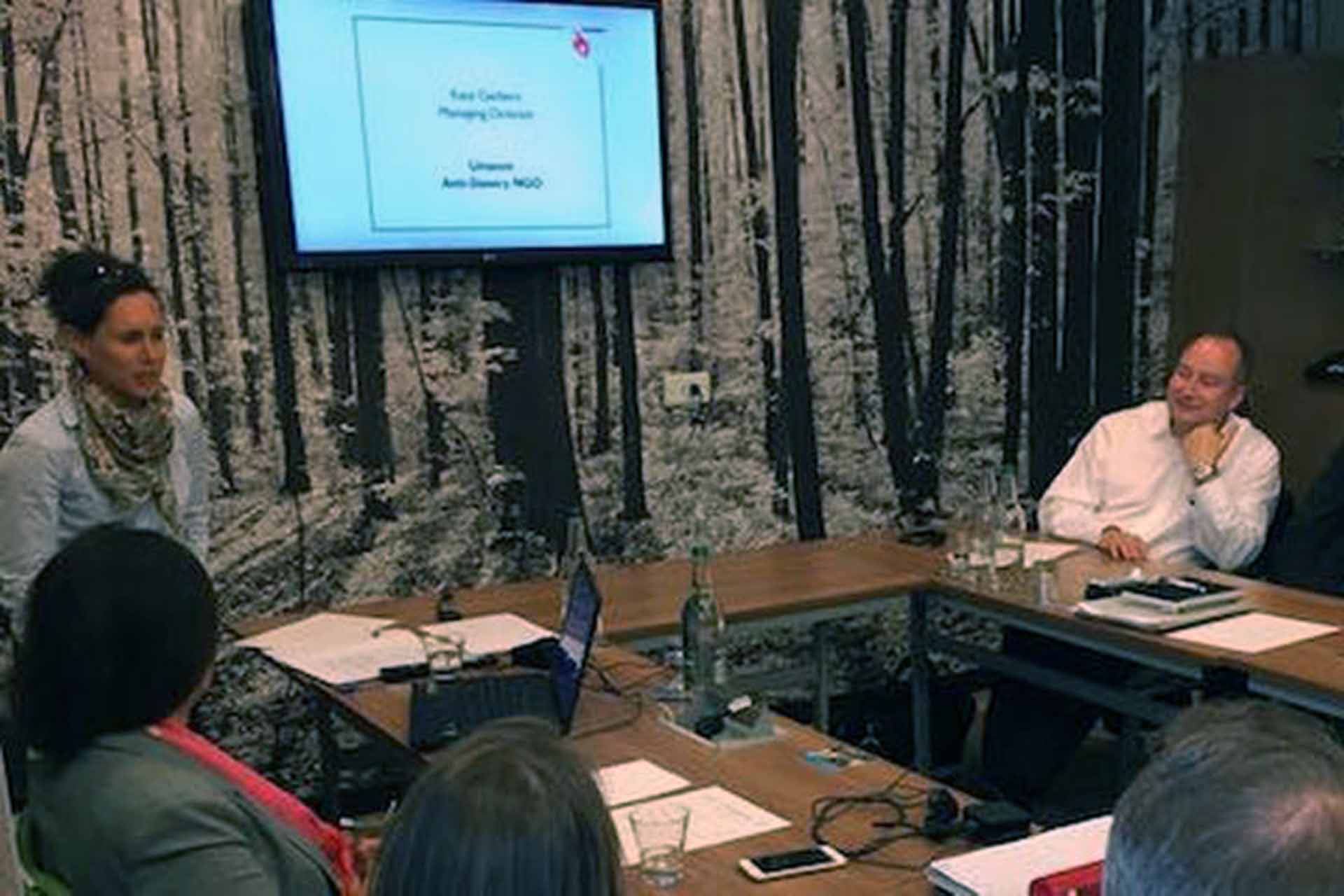
Shiva Foundation’s Guest Blogger, Kate Garbers, Managing Director of Unseen talks about slavery as not only a human rights issue, but also as an economic one.
We can no longer avoid the fact that if we didn’t demand cheap labour, cheap goods and cheap services, the demand and supply for this crime would diminish dramatically. If the risk to those engaged with the exploitation and enslaving of other people was greater, the profit margin smaller, I believe we would see a decrease in the number of people being enslaved. Remove the incentives and all of a sudden the prospects don’t look so attractive.
For too long the rhetoric and practice has been that slavery is an issue that government, non-governmental organisations and law-enforcement can tackle in isolation, and it hasn’t been successful. A recent UK Government report indicated that there are 10-13,000 slaves in the UK at one time. We have to move the current agenda on from that of purely human rights to one of economics and engage a wider range of players in this arena. Businesses, the media and society at large have to be involved if we are to truly see an end to this hideous trade in our lifetime.
The Modern Slavery Act reached Royal Assent in March 2015. The act will give law enforcement the tools to tackle modern slavery, ensure perpetrators can receive suitably severe punishments and enhance support and protection for victims. The Modern Slavery Act 2015 is the first of its kind in Europe, and one of the first in the world to specifically address slavery and trafficking in the 21st century.
Part of the new Act is the ‘Transparency in Supply Chains legislation etc’ (TISC) clause. TISC will require businesses to engage with the issue of slavery. How TISC will be enacted will be announced in October but the Act clearly states that companies and businesses above a certain threshold will be required to produce a slavery and human trafficking statement. This statement must include ‘the steps the organisation has taken during the financial year to ensure that slavery and human trafficking is not taking place — in any of its supply chains, and in any part of its own business, or a statement that the organisation has taken no such steps’ (Part 6(54) Modern Slavery Act, 2015).
Businesses will be required to submit information which may be about:
- The organisation’s structure, its business and its supply chains;
- Its policies in relation to slavery and human trafficking;
- Its due diligence processes in relation to slavery and human trafficking in its business and supply chains;
- The parts of its business and supply chains where there is a risk of slavery and human trafficking taking place, and the steps it has taken to assess and manage that risk;
- Its effectiveness in ensuring that slavery and human trafficking is not taking place in its business or supply chains, measured against such performance indicators as it considers appropriate;
- The training about slavery and human trafficking available to its staff.
We believe that via TISC the government has enabled the potential for collaboration between businesses, NGOs, the general public and media. My hope is TISC will prove to be a particularly powerful systemic tool in efforts to prevent and deliver effective remedies to those being exploited or enslaved in supply chains and business practices, both here in the UK and globally. It will enable wider society to begin to effect meaningful change in corporate practices as well as informed decision making both in purchasing and engagement decisions with companies.
The point of TISC for businesses is simple; recognise that a lack of attention to these issues poses real risk; reputational risk, legislative risk and regulatory risk. Awareness of these risks and knowledge of the ways that traffickers may use your premises, products and services in connection with their trafficking activities can help businesses avoid negative publicity, business interruptions, potential lawsuits, public protests, and a loss of consumer trust, all of which can impact shareholder value.
Businesses need to realise where they may be inadvertently supporting slavery; investments, property, supply chain, sourcing of product, sourcing of staff, policies and practices, travel and so on. These all pose a risk and whether engaging directly or indirectly, knowingly or otherwise the new TISC legislation places the onus on businesses to investigate and to have an appropriate reported response to issues of slavery. This response may be, ‘we investigated and we found it and now we are acting to solve this issue.’ It may be that companies put in preventative measures through training staff, checking supply chains and outsourced contracts, and it may be that companies decide not to take any action.
One thing for sure is in the future I will be reading these reports carefully, and as a consumer I will be considering who I bank with, what dealership I buy my car from, where I purchase my clothes and food, who I fly with and which hotel I stay in based upon these reports; consumers, investors and shareholders will start voting with their feet.
Above all, at the heart of every business are people who, from my experience, when they learn about the issue of slavery are truly horrified by it and want to ensure they are not part of the problem but part of the solution of tackling the crime.


